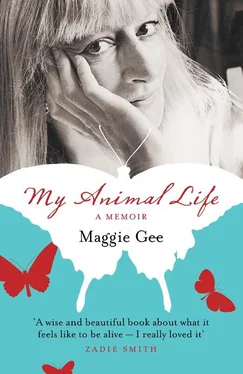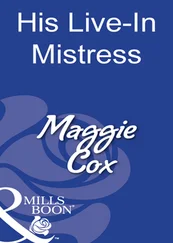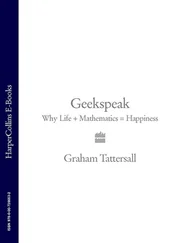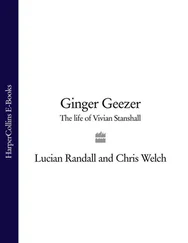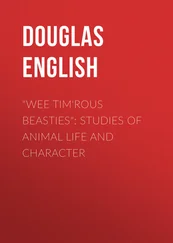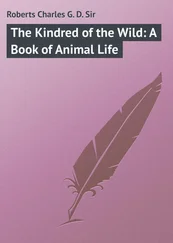From the springboard of the local grammar schools, those engines of class mobility which the current Labour government considers undemocratic, both my elder brother John and I won Major Oxford Scholarships, John’s in Physics and mine in English, while my political younger brother James (now Jim, but still unnaturally handsome) went to the best place for politics, LSE. Our parents were so proud, too proud for good sense.
Easy to understand why, since Vic and Aileen were easily as clever as their children, but were doomed by their class, and in my mother’s case, gender, not to have the education they deserved. (My mother, like her sister Eve, couldn’t continue her education after her ‘Highers’, because what little money the parents had was earmarked for the boys’ apprenticeships, even though the girls were brighter than the boys; only Eve and Aileen ‘passed the scholarship’ at eleven to the grammar school. ‘We thought nothing of it,’ said my mother, of the way the money went to her brothers. ‘It was just the way things were.’) My father had done an external, thus affordable, degree in geography, art, religious knowledge and PE at St Luke’s College, Exeter, which he did not rate highly. On the wall of our dining-room now is a black-and-white watercolour he did of the room where he stayed. ‘CORNER OF ROOM: 4-WASH TONAL EXERCISE, 1935’, the title written in his meticulously pencilled capital letters, underlined with obvious use of a ruler. It is a beautiful thing, because Vic had a real gift for drawing, as did his brother Lloyd who, apprenticed in the Railway Works, eventually rose to become the designer of the Queen’s Train. But the room in my father’s vision is claustrophobic, the bed ultra-narrow, the corner cluttered with bleak furniture, the window barred though the sunlight comes in a flood through one side of the curtain, the shadow in the corner very dark.
No wonder they channelled their own unfulfilled ambitions through us. What they had deserved, we would get. John and I always had to be not just the brightest but the youngest, both going to Oxford as painfully raw seventeen-year-olds, which was a tragic mistake, since if children are pushed on ahead of their peer group they grow lopsided, like a plant with only one side turned to the light. My childhood emotions and social skills never had a chance to catch up with my brains.
Many of my mistakes as an adult I could put down to this accelerated childhood, which cut me off from the peer group that sensible parents know is the only place, more than universities or prizes, where acceptance matters. To be liked, known, at ease, with good friends; it’s another part of happiness, pace Proust (and who wants to spend their life on their own, like him, in a cork-lined room, writing in bed? Occasionally, when the phone or email stops me writing, I envy him, but not very often.)
Pushed up into a class of eleven-year-olds at school when I was only nine, and in any case, coming from another part of England as I did, always a foreigner to my new giant Billingshurst classmates, the sturdy children of Sussex farmers and cleaners and builders; weedy and small, weighing only four stone when I arrived at the school in my skew-whiff pink National Health glasses, and sickeningly praised by the teachers, my fate was sealed.
‘Your mum and dad do your homework.’ ‘They don’t.’ ‘They do.’ ‘You stole your story from a book.’ ‘I didn’t.’ ‘You did.’ ‘Your family is posh’ — but I knew they were not. There were arm-twistings and slaps in the cloakroom from the glamorous Lamb twins, Joyce and Jean, and pushing and shoving and Chinese burns in the bike-sheds from the butcher’s fat carrot-top son Peter Sawyer and his sinister bright-blue-blazered, wedge-headed friend, who surely cannot have been, as I remember him, German, and called Kurt or Karl? (Of course it is possible. Looking back, the bullies are often the misfits, and we were still close to the war.)
But the Lambs — ah, the Lambs — they were different. Joyce — straight blonde hair and pretty — and Jean — dark curls, freckly animal face, a good runner but more of a bully than her sister — were queens of popularity, practically film stars, polished and posh, to me, as fresh paint, and though they hated and oppressed me, I wanted nothing on earth so much as myself to possess their grey pleated skirts, tight yellow polo neck jumpers, and most of all, so much that I almost desire them still, cherry-red corduroy trousers: banned by the headmaster, for fear of establishing a trend, within a week.
Mum did her best. Billingshurst just had a wool shop, so she had only the limited resources of Horsham’s premier department store, musty Chart and Lawrence, at her disposal, to assuage my passionate pleas for clothes like Joyce’s and Jean’s. Perhaps I thought they would make me look like a big girl instead of the skinny little weirdo I was. But no, there was nothing rational about my longing, it was just love. The Lambs were like girls in books, a perfect pair, because each, as in stories, had a ready-made best friend; they had stepped straight from the front page of Girl , dark Wendy and shining blonde Jinx, with their narrow red legs or knife-edge grey pleats, their sunshine yellow tops and victorious smiles. I instructed my mother (as I thought) in the exact items to be bought; I had had no new clothes since for ever; now I could only wait.
Poor Mum. She must have gone on the train to Horsham and braved the old dragons of Chart and Lawrence. But in those days shop assistants saw my mother coming; despite her carefully narrowed vowels, for which a Gee uncle once mimicked her on a Wolverton bus. (An insult my loving mother never forgot. Oh class! How it makes us fear each other’s judgements. ‘Trying to be posh.’ ‘Not posh enough.’) She came back, indeed, with a pleated skirt, and most daringly, trousers. She was excited, but also afraid. She had taken a risk; my father never let her wear trousers, for in my sharply gendered family, trousers were for boys (which, in the great economy of action-reaction, must be why I now nearly always wear them).
Trousers and a skirt! Two new garments at once, and not on her birthday, for little Marg! Ungrateful churl that I was, I took one look, and pretended to like them, but within ten minutes, collapsed into sulks. The skirt was slightly hairy wool plaid, and brown. It was ordinary. No one would notice it, or admire it, or want to be my friend. The trousers, or what Mum called ‘trews’, were red, as she pleadingly pointed out, but they were dull red, orangey (‘I hate that colour, it’s horrible’), not corduroy, and made even darker by a pattern of small black dog-tooth check. And in any case by the next Monday, when I might have worn them, trousers were banned.
But not by my father, not for me. This was the fascinating, terrible thing about my father; though, as long as he could, until I was fourteen or fifteen, he banned anything potentially sexual in my life, such as layered haircuts, mascara, lipstick, high heels; though until I was ten I was never allowed to walk even as far as the station (400 yards) on my own, he eventually encouraged me to do all manner of things — work, travel, be independent, try to be famous — that his wife was forbidden. Why? I think now that because I was half him, and he could do anything, I could do anything too. I have heard of other fathers who do exactly the same — urge the daughters onward, keep the mother close at home.
The injustice was obvious to both of us, but Mum was generous, and rejoiced in my relative freedom. She said wistfully, sometimes, after all her three children had finished their qualifications, ‘I’m the only person in the family without a degree.’ Dad would be brusque and dishonest: ‘You’re cleverer than all of us, you know you are Aileen. You don’t need a qualification to prove it.’ Of course, she did need it. I heard that exchange too often.
Читать дальше
